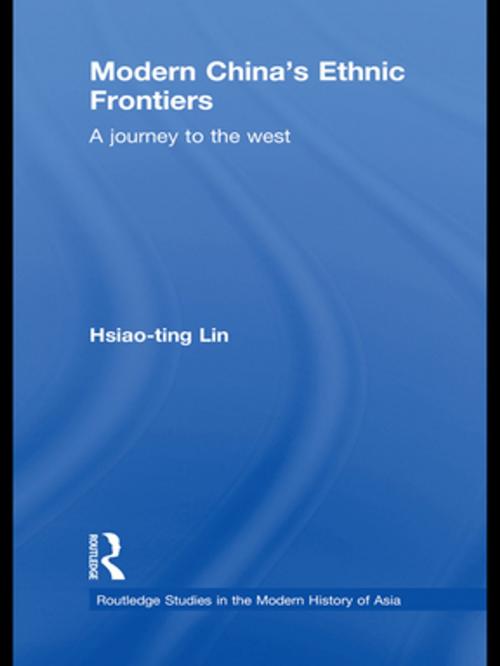Modern China's Ethnic Frontiers
A Journey to the West
Nonfiction, History, Asian, Asia, China, Modern| Author: | Hsiao-ting Lin | ISBN: | 9781136923920 |
| Publisher: | Taylor and Francis | Publication: | September 13, 2010 |
| Imprint: | Routledge | Language: | English |
| Author: | Hsiao-ting Lin |
| ISBN: | 9781136923920 |
| Publisher: | Taylor and Francis |
| Publication: | September 13, 2010 |
| Imprint: | Routledge |
| Language: | English |
The purpose of this book is to examine the strategies and practices of the Han Chinese Nationalists vis-à-vis post-Qing China’s ethnic minorities, as well as to explore the role they played in the formation of contemporary China’s Central Asian frontier territoriality and border security.
The Chinese Revolution of 1911, initiated by Sun Yat-sen, liberated the Han Chinese from the rule of the Manchus and ended the Qing dynastic order that had existed for centuries. With the collapse of the Qing dynasty, the Mongols and the Tibetans, who had been dominated by the Manchus, took advantage of the revolution and declared their independence. Under the leadership of Yuan Shikai, the new Chinese Republican government in Peking in turn proclaimed the similar "five-nationality Republic" proposed by the Revolutionaries as a model with which to sustain the deteriorating Qing territorial order. The shifting politics of the multi-ethnic state during the regime transition and the role those politics played in defining the identity of the modern Chinese state were issues that would haunt the new Chinese Republic from its inception to its downfall.
Modern China's Ethnic Frontiers will be of interest to students and scholars of Chinese history, Asian history and modern history.
The purpose of this book is to examine the strategies and practices of the Han Chinese Nationalists vis-à-vis post-Qing China’s ethnic minorities, as well as to explore the role they played in the formation of contemporary China’s Central Asian frontier territoriality and border security.
The Chinese Revolution of 1911, initiated by Sun Yat-sen, liberated the Han Chinese from the rule of the Manchus and ended the Qing dynastic order that had existed for centuries. With the collapse of the Qing dynasty, the Mongols and the Tibetans, who had been dominated by the Manchus, took advantage of the revolution and declared their independence. Under the leadership of Yuan Shikai, the new Chinese Republican government in Peking in turn proclaimed the similar "five-nationality Republic" proposed by the Revolutionaries as a model with which to sustain the deteriorating Qing territorial order. The shifting politics of the multi-ethnic state during the regime transition and the role those politics played in defining the identity of the modern Chinese state were issues that would haunt the new Chinese Republic from its inception to its downfall.
Modern China's Ethnic Frontiers will be of interest to students and scholars of Chinese history, Asian history and modern history.















